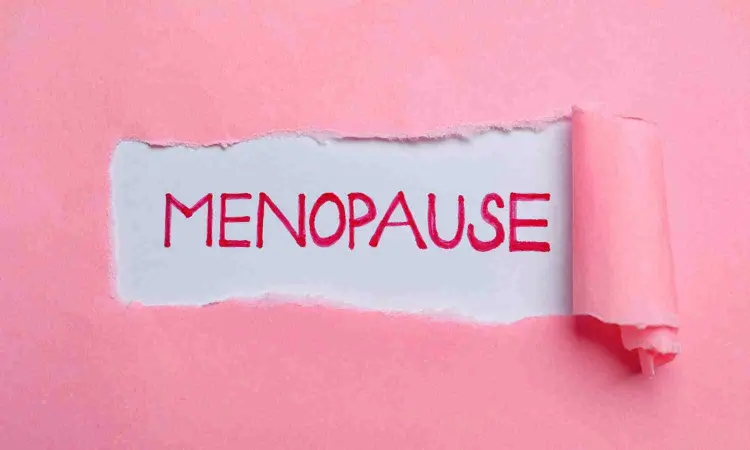- Home
- Medical news & Guidelines
- Anesthesiology
- Cardiology and CTVS
- Critical Care
- Dentistry
- Dermatology
- Diabetes and Endocrinology
- ENT
- Gastroenterology
- Medicine
- Nephrology
- Neurology
- Obstretics-Gynaecology
- Oncology
- Ophthalmology
- Orthopaedics
- Pediatrics-Neonatology
- Psychiatry
- Pulmonology
- Radiology
- Surgery
- Urology
- Laboratory Medicine
- Diet
- Nursing
- Paramedical
- Physiotherapy
- Health news
- Fact Check
- Bone Health Fact Check
- Brain Health Fact Check
- Cancer Related Fact Check
- Child Care Fact Check
- Dental and oral health fact check
- Diabetes and metabolic health fact check
- Diet and Nutrition Fact Check
- Eye and ENT Care Fact Check
- Fitness fact check
- Gut health fact check
- Heart health fact check
- Kidney health fact check
- Medical education fact check
- Men's health fact check
- Respiratory fact check
- Skin and hair care fact check
- Vaccine and Immunization fact check
- Women's health fact check
- AYUSH
- State News
- Andaman and Nicobar Islands
- Andhra Pradesh
- Arunachal Pradesh
- Assam
- Bihar
- Chandigarh
- Chattisgarh
- Dadra and Nagar Haveli
- Daman and Diu
- Delhi
- Goa
- Gujarat
- Haryana
- Himachal Pradesh
- Jammu & Kashmir
- Jharkhand
- Karnataka
- Kerala
- Ladakh
- Lakshadweep
- Madhya Pradesh
- Maharashtra
- Manipur
- Meghalaya
- Mizoram
- Nagaland
- Odisha
- Puducherry
- Punjab
- Rajasthan
- Sikkim
- Tamil Nadu
- Telangana
- Tripura
- Uttar Pradesh
- Uttrakhand
- West Bengal
- Medical Education
- Industry
Feeling depressed after menopause? Hormone therapy may help

Hormone therapy (HT) is already recognized as the most effective treatment option for physiologic menopause symptoms such as hot flashes, but a new study is one of the first to suggest that it might also help manage depressive symptoms. It further documented a high rate of depression during menopause.
Results of the study have been published online in Menopause, the journal of The Menopause Society.
Depression and other mood-related symptoms can strike at any time during a woman’s life but have been shown to be especially likely during and immediately after the menopause transition. In a new study involving 170 women who were patients at a menopause clinic in Ontario, Canada, there was a high prevalenc-62%-of participants who scored as being “depressed.” Although these symptoms may not necessarily reach the severity of a major depressive disorder, they still could significantly affect quality of life and relationships.
To date, the effectiveness of HT to effectively manage hot flashes (technically known as vasomotor symptoms) has been well documented. However, its ability to address mood-related symptoms is less established. This new study from Canada sought to correct that problem.
Hormone influences on neurotransmitter-receptor pathways, which regulate mood during and after the menopause transition, are thought to play a role in depressive symptoms. In addition, the domino theory suggests that the toll of physiologic symptoms experienced during menopause, such as hot flashes and an array of genitourinary problems, could also contribute to adverse moods.
As part of their study, researchers attempted to determine whether the stage of menopause contributed to an increased risk of depression, but no association was found, although a lower education level (high school or less) and younger age did show a direct correlation. The addition of progestin to the HT regimen did not have a significant effect on overall effectiveness. Additionally, although women who went through natural menopause experienced significant improvements with regard to their depressive symptoms, women who experienced iatrogenic menopause (surgical or chemotherapy based) did not have similar improvements.
On the basis of these results, the researchers concluded that HT-whether used alone or in conjunction with antidepressants-can improve not only hot flashes but also depressive symptoms commonly associated with menopause.
Survey results are published in the article “Does menopause hormone therapy improve symptoms of depression? Findings from a specialized menopause clinic.”
“This study showed a beneficial effect of hormone therapy on mood symptoms during menopause when used alone and a synergistic effect when used in combination with antidepressants. It also highlights the high prevalence of mood symptoms during this transition and the need to address women’s symptoms holistically rather than having a singular focus on hot flash management,” says Dr. Stephanie Faubion, medical director for The Menopause Society.
Reference:
Gnanasegar R, Wolfman W, Galan LH, Cullimore A, Shea AK. Does menopause hormone therapy improve symptoms of depression? Findings from a specialized menopause clinic. Menopause. 2024 Feb 20. doi: 10.1097/GME.0000000000002325.
Dr Kamal Kant Kohli-MBBS, DTCD- a chest specialist with more than 30 years of practice and a flair for writing clinical articles, Dr Kamal Kant Kohli joined Medical Dialogues as a Chief Editor of Medical News. Besides writing articles, as an editor, he proofreads and verifies all the medical content published on Medical Dialogues including those coming from journals, studies,medical conferences,guidelines etc. Email: drkohli@medicaldialogues.in. Contact no. 011-43720751


